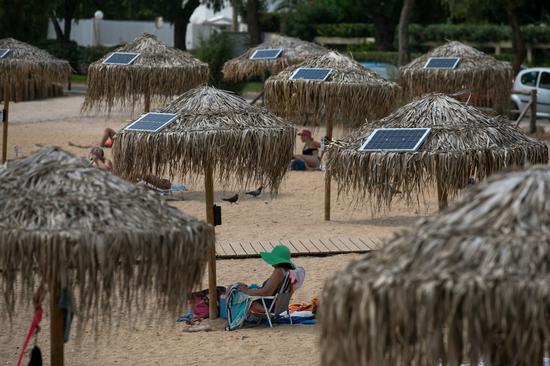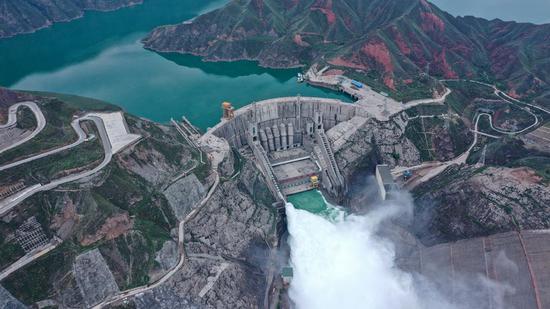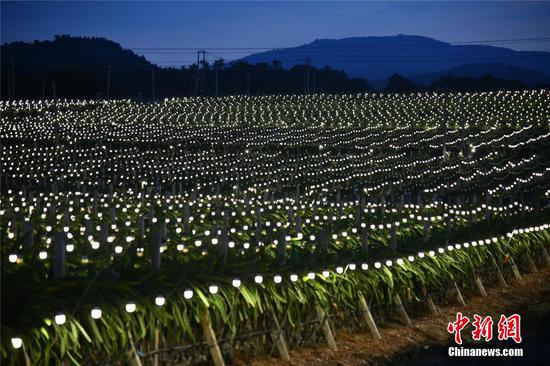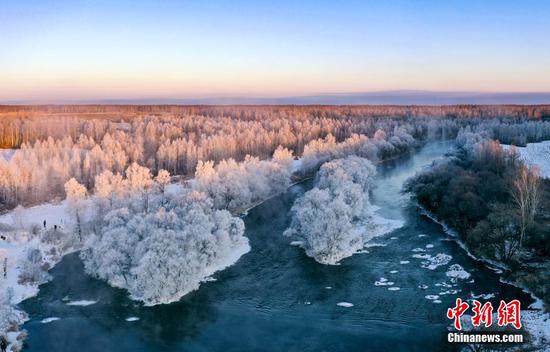
Photo taken on July 21, 2020 shows solar panels on umbrellas at an open public beach near the city hall of Vari-Voula-Vouliagmeni municipality in southern Athens, Greece. (Photo by Lefteris Partsalis/Xinhua)
As 2020 draws to an end, leaders and officials in the energy world do not feel the relief, since uncertainties brought by unprecedented public health crises have kept on unfolding.
As the International Energy Agency (IEA) put in its World Energy Outlook 2020, the COVID-19 pandemic "has caused more disruption to the energy sector than any other event in recent history, leaving impacts that will be felt for years to come."
With all the bad news of plummeting oil demand, decreased oil prices and even company bankruptcy, it is glad to find that the pandemic does not stall the development of energy transition. Rather, governments and industries have put more efforts on achieving their goals through encouraging policy measures, investment and collaboration.
ENCOURAGING TREND
In May, the World Economic Forum issued its annual energy transition report, warning the transformation of the global energy system could be derailed as the pandemic continued to cause economic and social damage.
In the report titled "Energy Transition Index (ETI) 2020: from crisis to rebound," the forum said that global energy transition from carbon fuels to climate-friendly energy sources has been moving at a slow but steady pace. However, the economic development and growth of energy transition is challenged by the pandemic.
Toward the end of the turbulent year, however, it seems the global health crisis and economic stall in 2020 have actually pushed forward the energy transition process rather than hindered it.
According to a report released by the IEA in November, renewable energy development and deployment have been resilient during the COVID-19 pandemic as developers in most countries did not halt construction.

For instance, global hydropower capacity increased in the first half of 2020 in spite of the pandemic, mostly owing to the commissioning of large-scale projects in China.
"China is the leader of renewable energy markets and our data shows that it will remain by far the largest country in the coming years," said Heymi Bahar, co-author of the report.
The trend is also proven by industry officials. Paula Gant, senior vice president of GTI, a research, development, and training organization addressing global energy and environmental challenges, said during an energy webinar that the pandemic has accelerated the process of energy transition, making it even more robust than one might have predicted a year ago.
Gant explained that in 2020, many global companies, some even out of the energy space, have set their goals in terms of clean energy, suggesting private sectors are doing their part toward decarbonization.
"Over the course of 2020 we've seen many companies have set out net zero targets by mid-century across all of their operations. We've seen some of the world's largest oil companies like Shell and Total set goals of reaching a zero carbon emissions," she said. "That's quite extraordinary in this year with a lot of uncertainties."
The net zero target refers to the notion that any emissions would be balanced by schemes to offset an equivalent amount of greenhouse gases from the atmosphere, such as planting trees or using technology like carbon capture and storage.
Gant's comment was echoed by Shell Oil Company President Gretchen Watkins. During the fourth annual energy conference co-hosted by the Baker Institute Center for Energy Studies and Baker Botts L.L.P., Watkins said that "COVID has shined a light on the energy transition and climate change that wasn't as bright as it was before."
Giving examples, Watkins said that some indicators, such as increasing demand for solar power and batteries this year, have shown such transition will accelerate.


















































